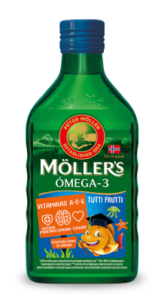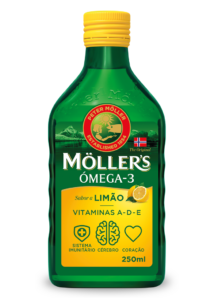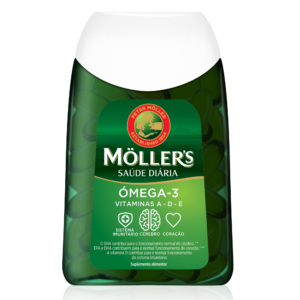Our amazing brains depend on both proper nutrition and mental stimulation to develop and function properly. Did you know that good nutrition for brain development starts in the womb? Read on for some other brain development facts you might not know.
Home » Five facts about brain development

1.Twenty-five years to full brain development
The human brain is not even nearly fully developed at birth. It needs years of continuous stimulation from the environment to mature completely. In fact, it is not considered fully mature until the age of 25!
Read more articles about brain here
2.The exciting second year
In the second year, language development happens very quickly. Most children undergo some kind of word race, where they multiply their vocabulary in just a few months. A precondition for this development is the normal functioning of the brain’s speech centre, since voice formation and control of strength and pitch is controlled by a fine interplay between the brain and hearing.
3.Brain development when you learn something new
Learning is the process of creating new connections between brain cells. When you experience or read something, a memory of this is formed in your brain by thousands of brain cells linking together. When you recall this situation later, the same links between the relevant neurons reactivate.
Good memory is a result of several paths to the right link in the brain, according to nobel-prize-winning neuroscientists Edvard and May-Britt Moser.
There is also an interesting link between memory, in this sense, and creativity. Good memory develops the ability to associate and this is the basis for creativity. Having many paths to various links means they can be activated in new contexts.
4.Omega-3 is good for your brain
The mother’s intake of the fatty acid DHA during pregnancy contributes to the foetus’s normal brain development. The best source of DHA is fatty fish such as mackerel, salmon and herring. A Bristol study conducted in the 1990s showed that children whose mothers ate no fish during pregnancy were 48% more likely to have a relatively low verbal IQ at the age of eight. Professor Jean Golding, one of the scientists at Bristol University who conducted the study, advises women who do not like fish to take omega-3 supplements as an alternative.
5.Keep your brain in shape
Medical doctor and cognitive neuroscientist of aging Andreas Engvig has found that daily mental memory training has a measurable physical effect on the brain. He believes that the brain becomes visibly bigger by training, just like a muscle. But for the training to have an effect, it should be perceived as pleasurable.
What is good health?
Do you have a good lifestyle?
Lifestyle simply means the way in which you live. Health and lifestyle go hand in hand. You might feel you have a good lifestyle if you are physically active, eat healthily and generally experience a sense of wellbeing. Conversely, if you want good health you should also have a good lifestyle.
Physical activity is the major contributor to a good lifestyle, but diet, drugs, stress, sleep and social conditions are also play an important role. Being able to use the body properly to avoid injury also affects lifestyle. Physical activity can also prevent depression and help you to recover more quickly from mental illness, both of which obviously affect your lifestyle.
Diet can be a difficult topic for many. Perhaps you eat too much or too little or maybe you find it hard to know what foods to combine to have a balanced diet. It’s also important to eat food that contains important vitamins, minerals and dietary fibre, omega-3 and antioxidants. On top of all this, you also need to get enough energy, protein and the correct fatty acids. The requirement for these nutrients changes throughout your life. When you are older you also have different requirements than children and younger adults. Women also have different requirements than men. Pregnant and breastfeeding mothers also have special requirements.
When you get older, you lose muscle mass and your body requires less energy and therefore less food. You may lead a less active life than you did before, which is why you require less food. However, your need for minerals, vitamins and other nutrients remains the same. Of course, there are plenty of healthy and active older people, but when you reach 70 to 80 years of age, it’s easier to become ill, especially during flu season.
Some steps you can take to improve your lifestyle and health are to:
- eat a healthy and varied diet
- stay active
- watch your weight
- avoid too much alcohol and don’t smoke
- get enough sleep
- think positive
- practise good hygiene
What is good quality of life?
The World Health Organisation (WHO) defines quality of life as a state where the individual can realise their potential, cope with normal stressful situations, work in a rewarding and positive way, and be able to contribute to others and society.
Quality of life is a wide and somewhat diffuse concept that includes joy in, and a desire for, life. These are values that are rather felt than measured, which in turn are based on personal environment and choices. Quality of life doesn’t necessarily depend on being healthy or sick. It’s the moments between worries, sorrows, problems and ailments that matter. For example, if you have a chronic illness, a feeling of mastery can be important when talking about quality of life.
To sum up, quality of life is a combination of health, lifestyle, networks and social support. It’s about experiencing joy, meaning in life, satisfaction, security and a sense of belonging, as well as being able to use your strengths. It’s also about feeling interest in life, coping with everyday situations and a being committed to something or someone. If you have good quality of life, you will be able to cope better with the inevitable stressful situations in life.
Learn more
Programa de exercícios para idosos
Healthy Aging Healthy Bones
Dieta saudável durante a gravidez
Brain Healthy Aging
Boa saúde, estilo de vida e qualidade de vida – O que tudo isso significa?
Cod Liver Oil Healthy Aging








